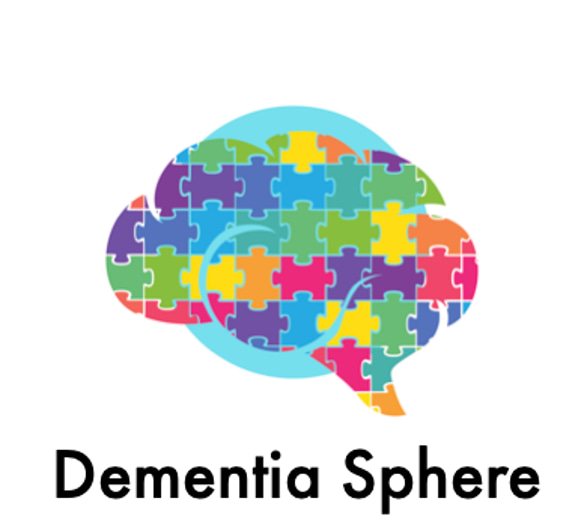10. Mum's Carers
Nazia


Another issue is that culturally women staying over at another person’s house (unless a relative) is not the norm or encouraged. I was not allowed to stay over at other people’s houses growing up. I never had sleep overs like my school friends. This means that there is a serious shortage of night carers in the South Asian community. Mum’s night carer was married but her husband was still waiting for his papers to move to the UK, so she was de facto a single woman. Her brothers had dropped her off at mum’s house on numerous occasions so had met and liked her, so they were more than happy for their sister to work with mum. I noticed that whenever any decisions needed to be made that affected their shifts, husbands and brothers needed to be consulted.
10. Mum's Carers
Following mum's fall and extended stay in the hospital, I was strongly advised to look for carers and have them attend to her daily needs. In terms of time frames, between her fall and the diagnosis, I had managed to arrange private carers who were attending about 18 hours a day. Scouting for carers was something I had anticipated would be time-consuming and extremely hard. Mum did not want carers through social services. She felt that they were useless and clockwatching all the time. In her opinion, agencies were about making money as they were businesses.
Mum was very particular and wanted things done her way. Her favourite line was 'It's my way or the highway'!! This was applicable to everything from cleaning the kitchen, cooking, washing clothes, hanging them up on the airer, personal care, squeezing the toothpaste out of the tube, taking tablets out of the foil strips, closing the curtains in the evening, ironing her clothes and the list goes on. She would reprimand me if I put the milk carton in the wrong place in the fridge door. I often teased her and said that she had OCDs about being particular about everything.
It's my way or the highway!!
Carers imposing their religious beliefs on mum
Looking back on it now, all three carers gave her the emotional support she needed. They cared for her, respected her wishes and pandered to her needs. However, looking at it coldly and unemotionally, they baby sat her. This is not a criticism of their service but a problem in the system of care support. If you want good carers you need to train them with the minimum requirements of medical support. Then comes the question of money. Carers are paid a pittance and are not generally valued in the system. Most of them are on very low pay and you get what you pay for. In my opinion most carers from the South Asian community are not fully trained unless they are really serious about becoming carers. In my view they consider care support as more of a side hustle and supplemental income for them. What I also found with mum’s carers was that they would impose their religious beliefs and practices on her. On one occasion, the night carer had informed me that mum had not slept all night. When the day carer took over, she mentioned that mum was sleeping and at lunchtime decided to wake her up because it was time to pray. I was furious when she told me this and told her so. If she had used her common sense, she would have understood that mum’s sleep was more important than praying at this stage in her life. On a positive note, both carers had the belief that to look after an elderly person would give them brownie points in heaven and that it was an honour to look after her.
Many of the activities mentioned above are generally not part of a care package offered by social services. Mum had availed of social services/hospital carers following her knee and heart operations. Their timings were restricted to 45 minutes per visit, and everything had to be done within that time-period. She loved to have long showers with hot water soothing her arthritis and found it difficult when the carers would rush her so that they could get on with other activities and go onto the next job. Additionally, their time keeping was horrendous. Most of them, for no fault of their own would turn up late and to mum 5 minutes late or 30 minutes late amounted to the same thing; late is late. She would be livid waiting around for them, so she emphatically refused to deal with social services carers or any agencies. On one of my trips back to London, I spoke to several Care Agencies, and they all said the same thing; that they could not cater to my mother’s needs/requirements!
Whilst I understand how difficult she was as a person, does this mean that people who are difficult to deal with, will not receive the care they need and want? Afterall, patients with dementia and other brain related diseases will more than likely be difficult, not because they want to be, but because that’s the nature of the diseases they have. The plight of care support for the South Asian community for dementia is very complex. Whilst I’m not a practising Muslim, my parents were. My father was more liberal minded and was of the opinion that belief is personal and to act according to one’s conscience. He did not create a scene if he ate a chocolate with alcohol in it (knowingly or unknowingly) or if non-halal meat was served to him in a restaurant or at somebody’s house. My mother was the same until her dementia set in and then she became more observant of the religion. Hence her requirements were that the carer should understand her needs linguistically, culturally and religiously. The community that I originate from - Assam - comes from the North-East of India and has a very small population in the UK as compared to other ethnic Indians. I can bet there are no carers who fit all three criteria of speaking Assamese, understanding Muslim culture and practising the rituals. Fortunately, my mother spoke Bengali and there are many carers from the Bangladeshi community. However, they speak Sylheti (a dialect of Bengali and not pure Bengali). It’s like speaking another language and not a dialect.
I acquired three carers initially, all through word of mouth. My parents at one stage were very active socially and a lot of our family friends were Bangladeshi. When my mother was in hospital, I sent out the word that I was looking for carers and within a day or so I found three. Two were recommended and the third one came through a contact at Whipps Cross Hospital. Initially we asked them to work for six hours a day, with one working at nighttime and the other two during the day. I should emphasise that none of these women were formally trained in any kind of care work. They were not qualified medically, but they had the heart to care for someone which is what my mother and I wanted. The night carer would sleep in the same room as mum, so she was not awake during the night. Mum would wake her up if she needed to go to the toilet, give her medication when required, pray with her in the morning and give her breakfast before leaving. At times she would send me videos of mum doing some exercise or dancing in the evening. The other two carers would split the work of cleaning, cooking, personal care, washing and ironing. Both would sometimes do the grocery shopping when they did their own or I would order online from Sweden. GP and hospital appointments were arranged by me also from Sweden as both day carers had limited ability or confidence to speak English. What I’ve realised is that there is a balancing act between finding carers who understand the linguistic, social/cultural and religious needs of the patient as well as understanding the medical needs.

Privacy Policy
Terms and Conditions